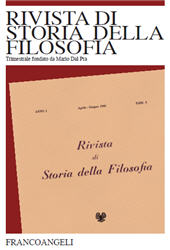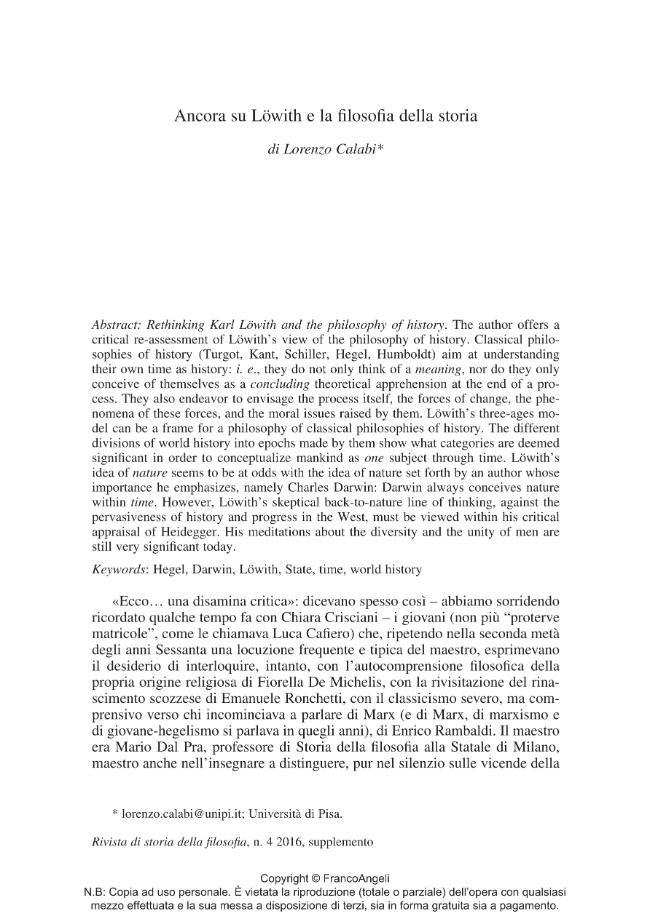Ancora su Lowith e la filosofia della storia
321-337 p.
The author offers a critical re-assessment of Lowith's view of the philosophy of history. Classical philosophies of history (Turgot, Kant, Schiller, Hegel, Humboldt) aim at understanding their own time as history: i. e., they do not only think of a meaning, nor do they only conceive of themselves as a concluding theoretical apprehension at the end of a process. They also endeavor to envisage the process itself, the forces of change, the phenomena of these forces, and the moral issues raised by them. Lowith's three-ages model can be a frame for a philosophy of classical philosophies of history. The different divisions of world history into epochs made by them show what categories are deemed significant in order to conceptualize mankind as one subject through time. Lowith's idea of nature seems to be at odds with the idea of nature set forth by an author whose importance he emphasizes, namely Charles Darwin: Darwin always conceives nature within time. However, Lowith's skeptical back-to-nature line of thinking,
against the pervasiveness of history and progress in the West, must be viewed within his critical appraisal of Heidegger. His meditations about the diversity and the unity of men are still very significant today. [Publisher's Text].
-
Articles du même numéro (disponibles individuellement)
-
Informations
Code DOI : 10.3280/SF2016-004-S1022
ISSN: 1972-5558
KEYWORDS
- Hegel, Darwin, Lowith, State, time, world history



